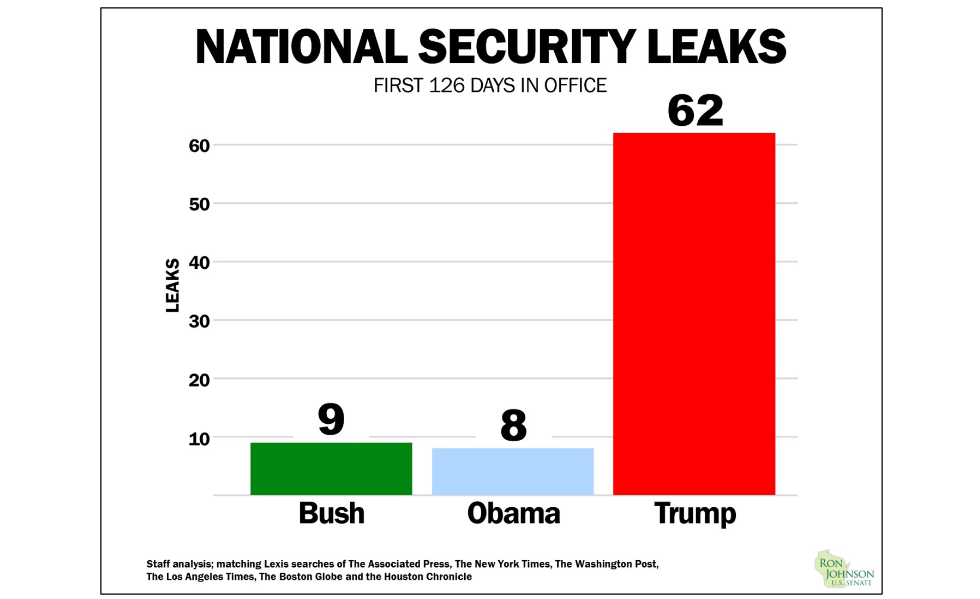GOP Report Recommends Investigating Leaked Stories
The smarter way to stay on top of the multichannel video marketplace. Sign up below.
You are now subscribed
Your newsletter sign-up was successful

Citing a host of stories, many by targets of the President's attacks on the mainstream media, a majority (Republican) staff report out of the Senate Homeland Security and Government Affairs Committee (cited in a story by Politico) has recommended that law enforcement thoroughly investigate leaks of "potentially sensitive" government material that are coming at an "alarming rate."
According to the report, the Trump Administration has seen on average a leak a day--125 stories based on leaks--with the majority (78) related to the probe into Russian interference in the U.S. presidential election.
The majority report cited 18 different news outlets sourcing "every possible permutation" of anonymous current and former government officials, including intelligence officials.
The report did not suggest every leak should result in criminal prosecution, but said it was clear that the "cascade" of leaks was causing "real harm."
The study looked at leaks from Jan. 20, when the new Administration came in, to May 25, and concluded that during that time there were 62 leaks of information related to national security versus eight such leaks in the first 126 days of the Obama Administration and nine in the same period of the George W. Bush Administration.
The report includes a list of the leaked stories and the names of the outlets and reporters. The majority (about two thirds) are from the New York Times, Washington Post and CNN, all of which have been prime targets for President Donald Trump's broad-brush attack on the news media as failing, biased, and enemies of the American People.
NBC, CBS, ABC and Fox also had at least one story in the leak-a-thon addendum to the letter.
The smarter way to stay on top of the multichannel video marketplace. Sign up below.
The Committee to Protect Journalists, which has branded the Administration attacks an unprecedented threat to press freedom, was troubled by the reports identification of reporters and the suggestion of a widespread investigation.
"The naming of more than a hundred journalists accused of harming national security seems intended to have a chilling effect on the press and is the type of measure that we see more often in authoritarian countries,” said CPJ senior researcher for the U.S., Alexandra Ellerbeck. “The free press and national security are not opposing interests: the American people are best served when a vigorous media holds the government to account.”
Contributing editor John Eggerton has been an editor and/or writer on media regulation, legislation and policy for over four decades, including covering the FCC, FTC, Congress, the major media trade associations, and the federal courts. In addition to Multichannel News and Broadcasting + Cable, his work has appeared in Radio World, TV Technology, TV Fax, This Week in Consumer Electronics, Variety and the Encyclopedia Britannica.

